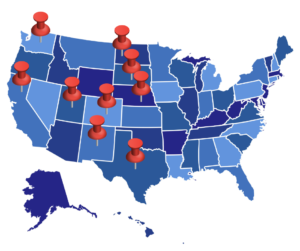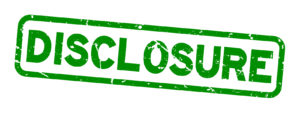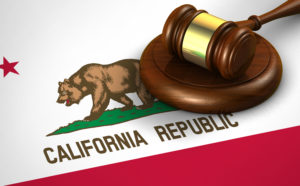What You Need to Know About the Taxability of SaaS in 9 Western States

Updated July 21, 2020
When it comes to Software-as-a-Service (SaaS) companies, there’s often confusion regarding both nexus and the taxability of this revenue stream.
And while the Wayfair decision seems like it’s directed only at online sellers, traditional multi-state sellers (including those that generate revenue from SaaS and software) are also affected, as nexus is now easier to establish. Once it is established – either by traditional physical presence or by sales volume – then companies will need to consider the taxability rules of SaaS in each state in which they have nexus.
Is SaaS even taxable? Because SaaS and cloud computing don’t always clearly fall into existing tax definitions, different states interpret its taxability in different ways. Some regard it as similar to electronically downloaded software, while others consider it a service, which may be taxable or not. And what about electronically downloaded software? Is it treated differently from SaaS?
Here’s a guide to the taxability of SaaS in these nine key western (and some mid-western) states:
Focus on Ohio

Ohio is a Midwestern state in the Great Lakes Region of the
United States. It is the 34th largest state by area, the seventh
most populous and the 10th most densely populated. Ohio is
historically known as the “Buckeye State” after its Ohio Buckeye trees and
Ohioans are also known as “Buckeyes.”
Much of Ohio features glaciated till plains, with an
exceptionally flat area in the northwest being known as the Great Black Swamp.
This glaciated region in the northwest and central part state is bordered to
the east and southeast by a belt known as the glaciated Allegheny Plateau, and
then the unglaciated Allegheny Plateau. Most of Ohio is of low relief, but the
unglaciated Allegheny Plateau features rugged hills and forests.
Sales Tax Issues Your Corporate Controller Needs to Know About

If your company is set up like most, the sales tax burden probably becomes yet another area piled onto the already busy plate of the corporate controller. This is especially true at small and middle market businesses. These organizations often don’t have a tax department that includes sales tax, so all accounting-related matters fall to the controller.
He or she is usually a financial accounting person and probably doesn’t enjoy dealing with tax anyway, but now they are stuck with trying to figure out the complications of sales tax. Unfortunately, due to the complicated nature of sales tax issues – especially now that the recent Wayfair case has complicated state-to-state commerce even more, the results could be costly for your business.
Important Sales Tax Issues Your CFO May Be Missing

In our multi-state tax consulting practice in Silicon Valley, we often see that sales tax is an afterthought in companies’ finance departments. Many companies have net operating losses (NOLs) for income tax purposes, and they often don’t consider the ramifications of sales tax.
Further, many of our clients sell intangible products – like software, SaaS platforms or digitally downloaded information – and those items don’t SEEM to be taxable. Plus, in California most of those items do qualify for sales tax exemptions; but that’s not the case in all states.
As such, with an already long “to do” list, CFOs and corporate controllers may not put sales tax concerns on the front burner. In another blog post, we explained why it’s not a good idea for a company’s corporate controller to take on the burden of sales tax. In some organizations, however, these responsibilities fall to the CFO. This post explains why this likely isn’t the best option, either.
FOCUS ON NEVADA

Nevada is a western U.S. state defined by its great expanses
of desert, and by the 24-hour casinos and entertainment for which its largest
city, Las Vegas, is famed. Las Vegas is home to elaborate themed hotels and luxury
resorts that line its main thoroughfare, the Las Vegas Strip. The city is also
home to museums such as the Mob Museum, extravagant live shows and upscale
shopping malls and restaurants.
Nevada is largely desert and semi-arid, much of it lies within
the Great Basin. Areas south of the Great Basin are within the Mojave Desert,
while Lake Tahoe and the Sierra Nevada lie on the western edge. About 86% of
the state’s land is managed by various jurisdictions of the U.S. federal
government, both civilian and military.
Nevada is the driest state in the United States. It is made
up of mostly desert and semi-arid climate regions, and, with the exception of
the Las Vegas Valley. While winters in northern Nevada are long and fairly
cold, the winter season in the southern part of the state tends to be of short
duration and mild. Most parts of Nevada received scarce precipitation during
the year. Most rain that falls in the state falls on the lee side (east and
northeast slopes) of the Sierra Nevada.
Business Climate
The economy of Nevada is tied to tourism (especially
entertainment and gambling related), mining, and cattle ranching. Nevada’s
industrial outputs are tourism, mining, machinery, printing and publishing,
food processing, and electric equipment.
Mining shaped Nevada’s economy for many years. However,
mining declined in the late 19th century. However, the rich silver
strike at Tonopah in 1900, followed by strikes in Goldfield and Rhyolite
boosted Nevada’s economy yet again.
In portions of the state outside of the Las Vegas and Reno
metropolitan areas mining plays a major economic role. By value, Gold is by far
the most important mineral mined. Other minerals mined in Nevada include
construction aggregates, copper, gypsum, diatomite and lithium. Despite its
rich deposits, the cost of mining in Nevada is generally high, and output is
very sensitive to world commodity prices.
Cattle ranching is a major economic activity in rural
Nevada. Nevada’s agricultural outputs are cattle, hay, alfalfa, dairy products,
onions, and potatoes. Over 90% of Nevada’s 484,000 acres of cropland is used to
grow Hay, mostly alfalfa, for livestock feed.
Tax Climate
Nevada does not administer an individual income tax, nor
does it facilitate a corporate income tax.
To compensate for not having a corporate
income tax, Nevada administers a gross receipts tax (Commerce tax). This is
modeled after the gross receipt taxes in Ohio, Texas and Washington state. This
Commerce Tax is a tax on the privilege of engaging in business in Nevada. It is
an annual tax that was passed by the state legislature in 2015. Business
entities engaged in business in Nevada are subject to the Commerce Tax. Each
business entity engaged in business in Nevada is required to file the Commerce
Tax return regardless of whether there is tax due or not. Some examples of
business entities include C and S corporations, limited liability companies and
partnerships and sole proprietorships, just to name a few. Some organizations
are exempt from this tax, such as government entities, non-profit organizations
pursuant to section 501(c) of the Internal Revenue Code and passive entities.
$4,000,000 is the standard amount a business entity is
allowed to deduct from its Nevada gross revenue before the Commerce Tax is
imposed. It reduces the business entity’s subject to tax, but it does NOT
exempt the business entity from the filing requirement.
Sales Tax Structure
Nevada’s average sales tax rate is 6.85%, which ranks 7th
in the nation.
Nevada has enacted economic nexus legislation. Remote
sellers are required to register to collect and remit NV sales tax if the
company’s gross revenue is more than $100,000 from the retail sale of tangible
personal property or makes 200 or more retail sales of tangible personal
property for delivery into NV. This legislation went into effect on Oct. 1, 2018.
Nevada is not very aggressive in its approach to the taxation
of technology products for sales tax purposes. All digital content is exempt
from taxation. Prewritten computer software that is electronically downloaded
is exempt and so is custom computer software that is electronically downloaded.
Lastly, all cloud services are exempt. How products are produced, sold and
delivered is critical to determining their tax status.
Many states have annual sales tax holidays, during which
certain items the state wants to promote the purchase of (like school supplies,
emergency preparedness supplies, or energy efficient appliances) can be purchased
sales tax free. Nevada, however, does not currently have any scheduled sales
tax holidays.
Random Facts
- Nevada takes its name from a Spanish word
meaning snow-capped. - Nevada is the largest gold producing state in
the nation. It is second in the world behind South Africa. - It would take 288 years for one person to spend
one night every hotel room in Las Vegas. - U.S. route 50 is known as the loneliest road in
America. - Construction worker hard hats were first
invented specifically for workers on the Hoover Dam in 1933. - In Death Valley, the Kangaroo Rat can live its
entire life without drinking a drop of liquid.
Our team at Miles Consulting Group
is available to discuss the specifics of your state tax situation, whether in Nevada
or other states, we can help you navigate the complex tax structures arising
from your multistate operations. Call us to help you achieve the best tax
efficiencies.
What You Need To Know About State Tax Issues During M&A Negotiations

Is your company facing a merger or acquisition? Is state tax part of the negotiations? It needs to be! Whether you’re the company buying or selling, state tax issues often arise during the process – even more so now that so many states have enacted economic nexus laws. How should you plan ahead? It begins with due diligence!
Discovering State Tax Issues During Due Diligence
It’s not uncommon for state tax issues to be uncovered during the due diligence phase of an M&A deal as both companies look at ramifications of additional states coming into play.
Often, when a major buyer is looking into a target company, its CPA firm has already addressed it, whereas the seller company (which is usually smaller) generally hasn’t dealt with the ramifications of selling their products across state lines because they often have little or no representation.
The good news is this is where we can assist! Miles Consulting Group works with many companies on the selling side of M&A deals, and can help dispute or reduce the estimates the acquiring company’s CPA firm provides.
WHAT COMPANIES NEED TO KNOW ABOUT VOLUNTARY DISCLOSURE AGREEMENTS.

The phrase of the day is “V-D-A”! In the state tax world, that refers to
Voluntary Disclosure Agreements, and we are working on many of these for our
clients lately. What are they, exactly,
and why should your company perhaps be considering them as well?
What is a Voluntary
Disclosure Agreement?
Simply put, entering into voluntary disclosure agreements
with states is about companies identifying their potential state tax exposure
(sales tax, income tax, or both) and coming forward voluntarily to pay any
outstanding liabilities before the state identifies the company as part of an
audit or other outreach effort. As
states are becoming more aggressive in their pursuit of out-of-state taxpayers,
it’s becoming a bit of a game of “Beat the Clock!”
What are the
advantages?
In considering whether to come forward proactively, a company may ask some of these questions, “Why should we come forward and tell the state that we have liabilities? Can’t we just wait for them to contact me? Maybe they won’t find me at all!” (Trust me, we’ve heard all of these, and then some!) Here are some of the advantages of doing a VDA:
- Limited Lookback – Many companies engage in a VDA because it limits the lookback period to three or four years. That means, even if a company has created nexus many years ago and has failed to collect and remit sales tax, or hasn’t filed income tax returns, the state will allow them to cut off several of those years and simply report on the last few years. For instance, if a state has a four-year lookback period for sales tax and notifies the state on May 31, 2019, then the lookback period would generally be from June 1, 2015 through May 31, 2019. The company would need to report any liability for that period, but not prior.
- Penalty abatement or reduction – generally all states that have a VDA program will waive penalties for companies that come forward voluntarily. This is important because penalties can often amount to 25% or more of the overall liability. Most states will not waive interest, because it is statutory and the Department of Revenue can’t waive it. However, Texas currently does waive interest on VDAs, and New York has a lower statutory rate for companies in voluntary disclosure, versus a more punitive rate if they discover the company first.
- Anonymity during the process – most states will allow companies to remain anonymous through at least some of the process. That’s helpful because we can explain the client’s entire situation, with dates, etc. and determine if the state will accept the proposal before revealing the company name. A few states require the company to disclose its name up front, but most still have a period of time where the company can be “protected” insofar as getting credit for coming forward even before they must identify the company name.
- Being on Offense vs Defense with the state – As in sports and life, it is generally better to be on the offense than defense. It’s similar when dealing with states. If a state selects a company for audit, there is generally a very specific audit plan, with several initial document requests. Then, during the audit, the auditor will want to sample invoices, see exemption certificates and resale certificates, etc. If some of these are not satisfactory, the auditor can use his or her discretion to disallow credits, or exemptions. However, if a company comes forward voluntarily, there is generally not a detailed audit of their records. (It’s important to note that the state does reserve the right to audit VDAs, but it’s not often that they do.) Companies still want to make every effort to pay the correct amount during the VDA process, but the record-keeping is a little less onerous. Also, the VDA comes at timing set out by the company. Part of what makes an audit so daunting is that it often comes when you least expect it. In planning for a VDA, the company can proceed at its own pace, to some degree.
How has Wayfair
complicated the matter?
VDAs are nothing new. We’ve been assisting clients with them for years. So why are we seeing more of them right now? Part of the reason is that companies are starting to be more aware of their overall state tax filing responsibilities as part of the larger discussion of the US Supreme Court case in South Dakota v. Wayfair (June 2018). As a result of the economic nexus concept and companies now having to register to collect and remit in states in which they have minimum sales volume (often $100,000 of sales or 200 transactions) many companies are finding that they need to analyze whether they may previously have had enough physical presence to create nexus. The answer is often “Yes”. And then, the company needs to determine how far back the exposure goes. Also note that often VDAs encompass both income tax and sales tax filings, so companies need to examine the exposure for both.
What’s new with
states and VDAs?
One of the benefits of doing VDAs has historically been that
companies could easily work with an assigned VDA representative at the state
and file the various paperwork (registrations, returns, sales schedules, etc.)
directly with that representative.
Generally, states didn’t require electronic filings until after the VDA
process was complete. While we still
work with these representatives in most states, more states are requiring at
least some registration to be completed on-line. For a variety of reasons, this can be
somewhat challenging. At the very least,
it has taken some of the human element out of it. And, well, quite frankly, we kind of liked
the human element!
How can we help?
By their nature, voluntary disclosures lend themselves to
some assistance from a consultant. If a
company wants to remain anonymous, they must use a third party to assist. Also, because each state has different
lookback periods, different rules for reporting, and sometimes specific nuances
in how to finalize the paperwork, it helps to have someone on your side with a
little experience in the process. How about 20+ years of experience? Even
better! Our consultants have dealt with
VDAs in states all across the country and we know the ins and outs of the
various nuances. Schedule a conversation
with us today to see if we can assist with your overall state tax analysis and
whether VDAs might be the best course of action to remedy any unreported
liabilities!
What You Need To Know About Resale Certificates & Online Sales Tax

If you’ve been following this blog, you know we’ve shared a lot about online sales tax legislation and how it affects online retailers. But what about ecommerce websites that purchase items at wholesale with the purpose of turning around and selling them to consumers?
If there weren’t a special exemption, online retailers would need to pay sales tax on the wholesale items, only to turn around and have their customers pay it again when they buy their products, resulting in double taxation. This is where resale certificates come in.
FOCUS ON PENNSYLVANIA

Pennsylvania, a northeastern state and one of the 13
original colonies, has a diverse terrain, which includes wide stretches of
farmland, national forests and mountains. Philadelphia, the Keystone State’s
largest city, displays its rich history in Independence Hall (where the
Declaration of Independence and Constitution were signed) and the Liberty Bell,
an enduring symbol of American Freedom. It was the second state to ratify U.S.
Constitution, on December 12, 1787.
The Appalachian Mountains run through the middle of the
state. Pennsylvania’s diverse topography also produces a variety of climates,
though the entire state experiences cold winters and humid summers. Straddling
two major zones, the majority of the state, with the exception of the southeastern
corner, has a humid continental climate. The southern portion of the state has
a humid subtropical climate that covers much of Delaware and Maryland to the
South.
WAYFAIR AND CALIFORNIA- YES, INDEED! PART 2

It has been almost a year since the U.S. Supreme Court handed down its landmark decision in South Dakota v. Wayfair Inc. (June 2018) , making it easier for states across the country to enact nexus triggering legislation, and ultimately leading to the collection of sales tax from companies doing business in various states.
The Supreme Court’s ruling in June 2018 did not automatically make economic nexus the law of the land for all 50 states. The Court ruled that South Dakota’s economic nexus law was constitutional. (The state had enacted legislation which stated that economic nexus is created in if an out of state company makes sales of products or services into South Dakota in excess of $100,000 or has 200 or more transactions in the state within a year.) However, since this ruling, over 35 states have enacted similar economic nexus legislation. As we describe in a recent blog, economic nexus is based upon the amount of sales or number of transactions in the state. If a certain threshold is met, nexus is deemed to be created.,



















